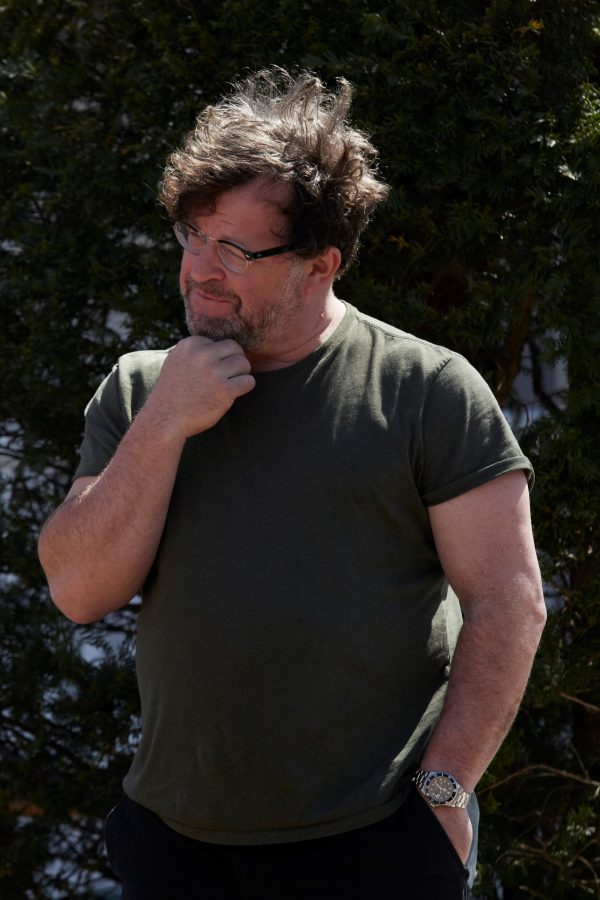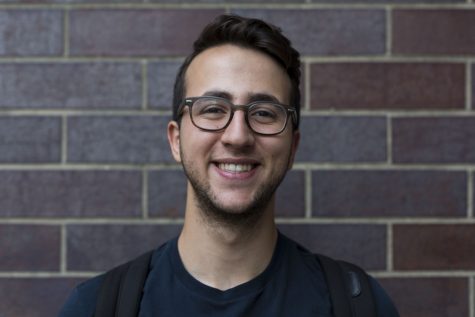Tisch to Manchester: Family, Grief and Writer’s Block
“Manchester By The Sea,” written and directed by NYU Tisch alum Kenneth Lonergan, has been nominated for six Academy Awards.
February 21, 2017
“Manchester by the Sea” is not just one of the best movies of 2016, but it is also something of a comeback for writer-director and NYU alum Kenneth Lonergan. In 2007, Lonergan’s film “Margaret” was set to be released, but a war between Fox Searchlight Pictures and the filmmaker erupted when the two parties couldn’t agree on a final running time. The film finally played in theaters in 2011 to muted audience response — though a year later Lonergan released a three-hour director’s cut version, which many consider a masterpiece.
With assistance from Matt Damon and John Krasinski, Lonergan returned to the silver screen last year with “Manchester,” a tragic, profound and shockingly funny tale of family bonds and loss. On Sunday, the film will be up for six Academy Awards, including Best Picture, Best Director, Best Actor and Best Original Screenplay. Earlier this month, WSN spoke with Lonergan about coping with grief, his time at the graduate Dramatic Writing program in Tisch and writer’s block.
Washington Square News: How has this whole process been — premiering at Sundance a year ago, to now being a month away from the Oscars? Has it been joyful or excruciating?
Kenneth Lonergan: It’s been basically really good. It’s really nice that people are responding to the film. I’m really happy the actors are getting the recognition I think they deserve. It’s really all I can ask for.
WSN: I read that you’re interested in situations where people deal with things that are bigger than them. Do you find grief and guilt are too big for one person to handle?
KL: This kind is, certainly. Everyone has to handle it. I think any kind of serious loss is something bigger than what we’re equipped to deal with. What these characters are going through is unusually severe and unusual for normal life. There’s plenty of people in plenty of places in the world who are dealing with [things] a lot worse than this. It’s not totally unique, but it’s definitely a big one. There are other things — just getting along with living is pretty difficult. Most of the stuff I’ve done is dealing with people trying to cope with some kind of situation that’s bigger than they are, whether it’s legal or moral or emotional.
WSN: What do you remember about growing up and dealing with loss or trauma?
KL: I’m 54, so it’s hard to get to that age without dealing with some kind of loss. Some people have trouble even getting to the age of 10 without dealing with something like that, but I didn’t have any big losses when I was young. My best friend lost his father when we were 21. I was pretty close to the family. Some friends have been ill over the years, and that’s a pretty big deal. My grandma had Alzheimer’s and that’s an impossible thing to reconcile with anything that made sense to me when I was in my 20s.
WSN: Did you draw from any of those experiences to flesh out the movie?
KL: You always do. If it’s not your own experience you try to bring your own experience to bear with what you consider to be an analogous situation. While I haven’t lost a child and I pray I never will, it’s easy when you have one to imagine — or think you can imagine — how difficult that would be. When things get tough, you’re still supposed to do your job and you’re still supposed to do your duty and you’re still supposed to show up for the people who need you. I think this film is about that as much as anything else, even though I haven’t had to cope with anything as severe as what these characters have to cope with.
WSN: How do you feel that humor is intertwined with grief?
KL: I think humor is intertwined with pretty much everything, and I think grief is no exception. I think without the other side — I won’t say the lighter side — going alongside the more difficult elements that the film looks at, the film wouldn’t be very lifelike. It would be a big, abusive dirge. I don’t plan on doing that. [laughs]
WSN: I was really struck by how funny the film was. I remember when my grandfather died, I expected the procession after his funeral to be extremely morbid. Instead, everyone was cheerful and laughing.
KL: That’s one of the first things that strikes you whenever you’re around a death — the humor just comes in and washes in with everything else.
WSN: What was it like being a father and making a film about really tragic familial deaths?
KL: A little weird. I’m used to it now being a film, but when you’re writing it you try to think of it as if it’s real. It’s a little bit of an odd thing to be writing something so terrible and knowing it’s something that’s really happened to other people. It hasn’t happened to you. You have to treat it with a lot of respect and humility and try to be truthful about depicting people.
WSN: How do you feel your time at Tisch prepared you for your professional career? Do you feel anything was lacking?
KL: No, I think it was really key. All my friends who later helped me get work and who I worked with came from Tisch. I stayed in touch with some of the teachers. It’s just great to be around people who are doing the same things as you are. That’s how your life after college gets started — through your friends.
WSN: Do you feel like you’ve utilized most of what you were taught?
KL: Some things yes, some things no. Everyone has got a different style. Some things were useful because [they] defined for me what I was interested in versus what other people were interested in. I don’t think one way is better or worse than another. One thing that’s good about a school like Tisch is that when someone says, “This is how you write a play and this is how you write a screenplay,” it doesn’t need to be a way that works for you. It can either be a way that works for you — which if it is, great — or it can be a way to throw your own ideas into release and help clarify them.
WSN: How was it making a film after having such a difficult time with “Margaret”? Were you anxious?
KL: I don’t know if I was anxious. I was a little tired and worn down I think. It was such a different situation. I wasn’t terribly concerned that I would run into the same problems. Those problems were so unusual and so extreme — logistical and political and administrative problems. The editing of “Margaret” spun out of control so crazily that it would have been really weird if that experience were to be repeated.
WSN: Do you have any surefire ways to get out of writer’s block?
KL: I wish I did because I’m really sunk in a good one right now. I would suggest to somebody else to just start doing something and see what happens, but I’m not really sure what the best way is. I think a change of scenery is good.
WSN: Has fatigue bogged you down?
KL: No, I really don’t know what it is. It just comes and goes, but I actually think sometimes you can get writer’s block from having your work recognized. It’s suddenly not a private relationship with your work anymore. Other people are talking about it, commenting about it, and you start to bring that into your office and your workspace. That’s profoundly unhelpful, even if it’s gratifying on another level.
WSN: Do you have any tips for aspiring writers, playwrights, filmmakers, what-have-you?
KL: Follow your own judgment as best as you can. Don’t listen to anybody else unless you’re sure you know what they’re talking about, and don’t argue with them when you don’t agree with them. Just nod and say you’ll think about it.
A version of this article appeared in the Tuesday, Feb. 21 print edition.
Email Ethan Sapienza at [email protected].




























































































































































